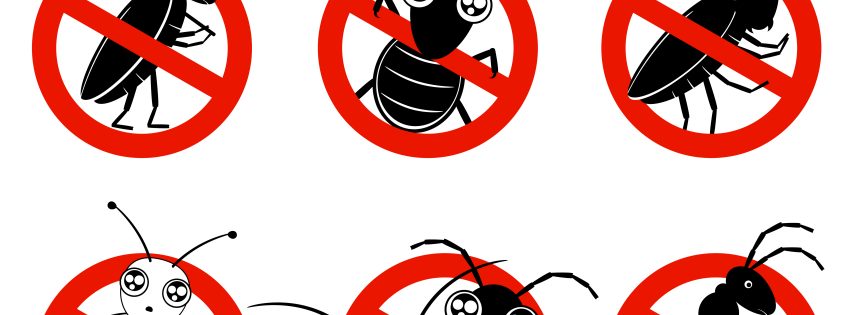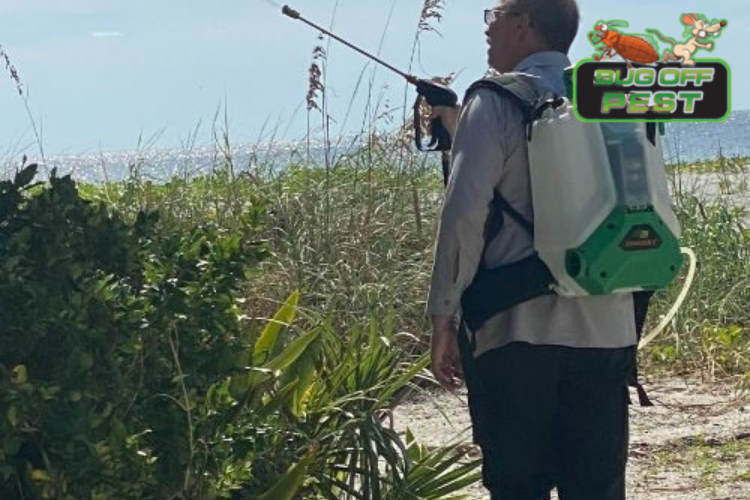Discover the Relevance of Parasite Control in Maintaining a Healthy Atmosphere and Therapy Techniques

The Role of Bugs in Ecosystems
Insects, typically seen solely as nuisances, play a multifaceted duty in environments that is crucial for preserving ecological balance. They add dramatically to numerous environmental processes, consisting of pollination, nutrition cycling, and pest control. Many insect varieties, such as and butterflies, are vital pollinators for a vast range of plants, which in turn supports biodiversity and food production.
Furthermore, pests function as victim for numerous predators, developing an important link in food internet. This interdependence makes certain the survival of various species and helps control populaces within environments (Termite treatment Port Charlotte). Furthermore, decomposer parasites, such as certain beetles and fungis, are important in damaging down natural issue, hence improving soil and promoting nutrient recycling.
On the other hand, while insects can be useful, their overpopulation or invasion into non-native atmospheres might disrupt these ecological functions. This complexity emphasizes the significance of comprehending parasite dynamics, as effective insect monitoring approaches have to consider both their eco-friendly roles and potential impacts on human tasks. Stabilizing pest visibility while decreasing damage is essential for maintaining the integrity of environments and making sure agricultural productivity.
Health And Wellness Dangers Connected With Parasites
The existence of parasites in different environments extends past their eco-friendly duties, as they likewise posture considerable health and wellness risks to human beings and animals. Several bugs, consisting of rats, bugs, and parasites, are providers of illness that can have major health and wellness effects. Rodents are understood to transmit hantavirus and leptospirosis, both of which can lead to severe respiratory system and renal problems, respectively.
Pests such as insects and ticks are notorious for spreading vector-borne conditions like malaria, dengue high temperature, and Lyme illness. These ailments can result in high morbidity and mortality rates, particularly in susceptible populations. In addition, pests like insects and cockroaches can intensify allergic reactions and bronchial asthma, adding to respiratory issues in individuals, particularly those with pre-existing problems.
Additionally, the existence of pests can result in emotional tension and discomfort, affecting total well-being. Contamination of food and surfaces by parasite droppings and stays can result in foodborne illnesses, highlighting the significance of preserving hygienic problems. Comprehending the wellness dangers associated with insects is vital in recognizing the necessity of reliable parasite administration methods to secure animal and human wellness.

Advantages of Effective Parasite Control
Reliable pest control is essential for maintaining a safe and healthy setting, as it consistently alleviates the numerous dangers related to bug problems. Among the main benefits of reliable bug management is the decrease of wellness threats. Parasites such as rodents, roaches, and insects are vectors for conditions that can impact both human beings and pet dogs. By regulating these populaces, the chance of disease transmission is dramatically decreased.
Additionally, efficient parasite control safeguards home and frameworks from damage. Lots of pests, like termites and carpenter ants, can create click now extensive architectural damage that might require expensive repair work. By proactively managing these companies, infestations and home owners can secure their financial investments.
An additional significant benefit is the improvement of total high quality of life. A pest-free environment adds to psychological health and reduces stress and anxiety related to invasions. Moreover, effective bug control fosters a safer environment for youngsters and pet dogs, guaranteeing that homes continue to be refuges complimentary from disease-causing microorganisms and damaging chemicals.
Typical Bug Control Techniques

In the realm of insect management, different methods are utilized to fight problems successfully. These techniques can be generally categorized into 3 primary approaches: social, mechanical, and chemical controls.
Social control involves modifying techniques to lower insect recreation, survival, and facility. This may consist of plant rotation, appropriate sanitation, and environment adjustment, which jointly create an environment much less conducive to pest expansion.
Mechanical control utilizes physical methods to remove insects (Termite treatment Port Charlotte). Methods such as traps, barriers, and vacuums are typically used to straight eliminate pests from an area. This approach is particularly efficient for managing rats and bugs without making use of damaging chemicals
Chemical control entails the application of chemicals to manage insects. These substances can be classified into insecticides, fungicides, and herbicides, each targeting certain kinds of insects. It find out is critical to utilize these chemicals sensibly, sticking to safety standards and regulations to lessen potential injury to non-target types and the atmosphere.
Each pest control technique has its benefits and constraints, and often, an incorporated approach combining numerous approaches generates the most effective outcomes in preserving a pest-free atmosphere.
Sustainable Insect Management Practices
Sustainable parasite monitoring techniques incorporate a series of techniques designed to minimize environmental influence while properly controlling parasite populations. These techniques prioritize making use of eco pleasant methods over chemical pesticides, thus lowering the danger of harm to non-target species, including advantageous pests, wildlife, and humans.
Integrated Pest Administration (IPM) is a cornerstone of sustainable techniques, integrating organic, social, mechanical, and chemical strategies to manage insects. Organic control entails introducing all-natural predators or parasites to suppress insect populations. Social techniques, such as crop rotation and polyculture, interrupt pest life cycles and enhance community resilience.
Mechanical approaches, such as obstacles or catches, can efficiently avoid insect accessibility without chemical treatment. Furthermore, keeping healthy ecological communities with proper soil administration, plant wellness, and biodiversity can naturally alleviate parasite issues.
Education and understanding are important components, encouraging individuals and areas to acknowledge insect risks early and execute preventive actions. Termite treatment Port Charlotte. By promoting an alternative method that balances parasite control with environmental check this honesty, lasting parasite management practices not only shield plants and structures yet likewise add to a much healthier setting for future generations
Verdict

Recognizing the wellness threats linked with bugs is important in identifying the requirement of effective parasite administration techniques to safeguard human and animal health.
Reliable bug control is important for maintaining a healthy and balanced and risk-free atmosphere, as it constantly minimizes the many threats linked with bug problems.Integrated Bug Monitoring (IPM) is a keystone of lasting techniques, combining biological, social, mechanical, and chemical tactics to take care of insects. By understanding the function of parasites, acknowledging involved wellness dangers, and utilizing varied therapy strategies, a lasting technique to pest administration can be attained. Integrated Bug Administration (IPM) stresses an alternative method that alleviates harm to beneficial organisms while properly controlling insect populations.